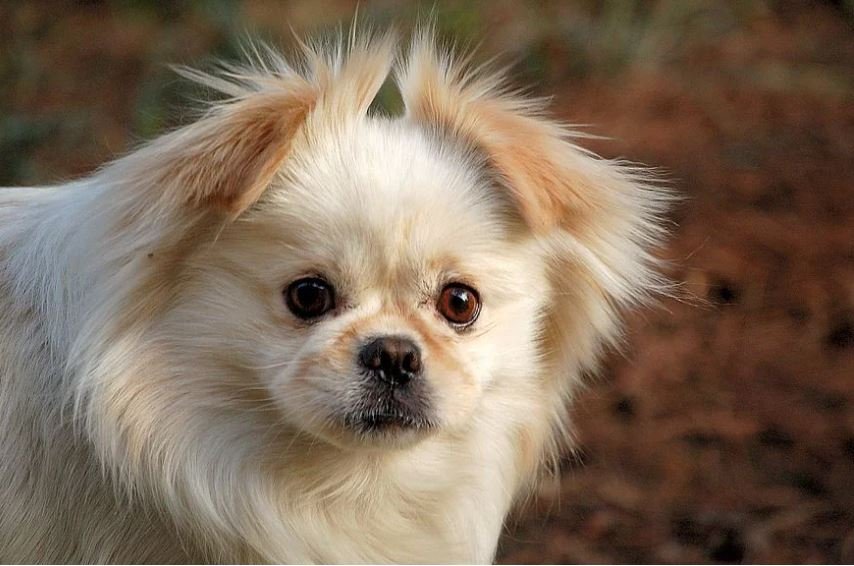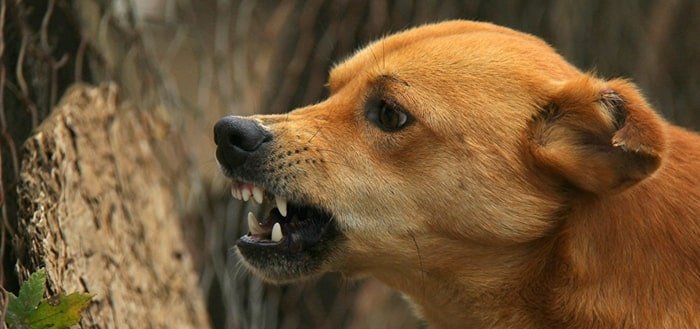Do you have a puppy dog that is always grumpy, snappy, or moody? Do you wonder why your furry friend is not as friendly or playful as other dogs? If so, you are not alone. Many dog owners face the challenge of dealing with a grouchy puppy dog. But don’t worry, there is hope. In this article, you will learn:
- What causes a puppy dog to be grouchy
- How to identify the signs of a grouchy puppy dog
- How to prevent and manage a grouchy puppy dog
- How to train and socialize a grouchy puppy dog
- How to enjoy and bond with a grouchy puppy dog
By following these tips, you can help your puppy dog overcome its grumpiness and become a happier and healthier companion.
Understanding: “Grouchy Puppy Dog”
Before we dive into the details, let’s first understand the significance of the word “grouchy puppy dog” The term “grouchy puppy” refers to a young dog that exhibits signs of irritability, moodiness, or aggression. Owning a grouchy puppy can be overwhelming, and finding reliable guidance becomes essential for dog owners.
What Causes a Puppy Dog to Be Grouchy?

There are many possible reasons why a puppy dog may be grouchy. Some of the most common ones are:
- Pain or discomfort: A puppy dog may be grouchy if it is suffering from an injury, illness, infection, or other physical problem. It may also be grouchy if it is feeling cold, hot, hungry, thirsty, or tired. A puppy dog may not be able to communicate its pain or discomfort to you, so it may express it by being irritable or aggressive.
- Fear or anxiety: A puppy dog may be grouchy if it is scared or nervous about something. It may be afraid of loud noises, strangers, other animals, new places, or unfamiliar situations. A puppy dog may also be anxious if it is separated from you, its owner, or if it is left alone for too long. A puppy dog may show its fear or anxiety by being defensive or hostile.
- Stress or frustration: A puppy dog may be grouchy if it is under too much pressure or if it is not getting what it wants. It may be stressed by changes in its environment, such as moving to a new home, getting a new family member, or losing a loved one. It may also be frustrated by lack of exercise, stimulation, attention, or rewards. A puppy dog may vent its stress or frustration by being rebellious or destructive.
- Lack of socialization or training: A puppy dog may be grouchy if it has not learned how to behave properly around people and other animals. It may not know how to read or respond to social cues, such as body language, tone of voice, or facial expressions. It may also not know how to follow basic commands, such as sit, stay, or come. A puppy dog may act out its ignorance or confusion by being rude or aggressive.
How to Identify the Signs of a Grouchy Puppy Dog?
A puppy dog may not always tell you directly that it is grouchy, but it may show you through its actions and reactions. Some of the signs of a grouchy puppy dog are:
- Growling or snarling: A puppy dog may growl or snarl at you or others to warn you to back off or leave it alone. It may also growl or snarl if it is guarding something, such as its food, toy, or bed. A puppy dog may also growl or snarl if it is playing, but it may be hard to tell the difference between playful and serious growling or snarling.
- Biting or nipping: A puppy dog may bite or nip at you or others to show its displeasure or dominance. It may also bite or nip if it is teething, exploring, or playing. A puppy dog may also bite or nip if it is trying to get your attention or communicate something to you.
- Barking or howling: A puppy dog may bark or howl at you or others to express its emotions or needs. It may also bark or howl if it is bored, lonely, excited, or alert. A puppy dog may also bark or howl if it is trying to join in a conversation or make its presence known.
- Hiding or avoiding: A puppy dog may hide or avoid you or others to escape from something that it does not like or that scares it. It may also hide or avoid if it is feeling shy, insecure, or overwhelmed. A puppy dog may also hide or avoid if it is trying to get some peace or some privacy.
- Shaking or trembling: A puppy dog may shake or tremble if it is cold, sick, or in pain. It may also shake or tremble if it is nervous, anxious, or stressed. A puppy dog may also shake or tremble if it is excited, happy, or aroused.
How to Prevent and Manage a Grouchy Puppy Dog?
The best way to deal with a grouchy puppy dog is to prevent it from becoming grouchy in the first place. Here are some tips on how to prevent and manage a grouchy puppy dog:
- Check for physical problems: If your puppy dog is grouchy, the first thing you should do is to check for any physical problems that may be causing it discomfort or pain. You should look for any signs of injury, illness, infection, or parasites, such as cuts, bruises, swelling, redness, discharge, fever, vomiting, diarrhea, or itching. You should also check for any environmental factors that may be bothering your puppy dog, such as temperature, humidity, noise, or lighting. If you find any physical problems, you should take your puppy dog to the vet for treatment as soon as possible.
- Provide for basic needs: You should also make sure that your puppy dog has everything it needs to be comfortable and happy. You should provide your puppy dog with enough food, water, shelter, bedding, toys, and treats. You should also make sure that your puppy dog gets enough rest, sleep, and relaxation. You should avoid overfeeding, underfeeding, or feeding your puppy dog anything that may upset its stomach or cause allergies. You should also avoid exposing your puppy dog to extreme heat, cold, or weather conditions that may harm its health or well-being.
- Reduce fear and anxiety: You should also try to reduce any fear or anxiety that your puppy dog may have. You should introduce your puppy dog to new people, animals, places, and situations gradually and positively. You should use praise, rewards, and treats to encourage your puppy dog to be brave and curious. You should also avoid forcing your puppy dog to do anything that it does not want to do or that scares it. You should also avoid yelling, hitting, or punishing your puppy dog for being fearful or anxious, as this may only make it worse.
- Relieve stress and frustration: You should also try to relieve any stress or frustration that your puppy dog may have. You should provide your puppy dog with enough exercise, stimulation, attention, and affection. You should play with your puppy dog regularly and provide it with various toys and games to keep it entertained and challenged. You should also spend quality time with your puppy dog and show it that you love and care for it. You should also avoid changing your puppy dog’s routine or environment too often or too drastically, as this may confuse or upset it. You should also avoid ignoring, neglecting, or isolating your puppy dog for too long, as this may make it bored or lonely.
- Teach socialization and training: You should also teach your puppy dog how to socialize and behave properly around people and other animals. You should expose your puppy dog to different kinds of people and animals from an early age and teach it how to interact with them politely and respectfully. You should use positive reinforcement, such as praise, rewards, and treats, to reward your puppy dog for being friendly and cooperative. You should also avoid reinforcing negative behaviors, such as growling, biting, or barking, by giving your puppy dog attention or reaction. You should also teach your puppy dog basic commands, such as sit, stay, come, and leave, and use them consistently and firmly. You should also avoid using harsh or abusive methods, such as choking, hitting, or yelling, to train your puppy dog, as this may damage its trust and confidence.
How to Train and Socialize a Grouchy Puppy Dog
Training and socializing a grouchy puppy dog may not be easy, but it is not impossible. With patience, persistence, and positivity, you can help your puppy dog overcome its grumpiness and become a well-mannered and well-adjusted companion. Here are some tips on how to train and socialize a grouchy puppy dog:
- Start early and be consistent: The best time to start training and socializing your puppy dog is when it is still young and impressionable. The earlier you start, the easier it will be for your puppy dog to learn and adapt. You should also be consistent in your training and socializing methods and expectations. You should use the same commands, signals, and rewards every time and apply them to every situation and person. You should also avoid confusing or contradicting your puppy dog by changing the rules or being inconsistent.
- Use positive reinforcement and avoid negative reinforcement: The most effective way to train and socialize your puppy dog is to use positive reinforcement, such as praise, rewards, and treats, to encourage and motivate your puppy dog to do what you want. You should reward your puppy dog immediately and generously for every correct or desired behavior. You should also avoid using negative reinforcement, such as scolding, punishment, or correction, to discourage or stop your puppy dog from doing what you don’t want. You should ignore or redirect your puppy dog’s unwanted behavior and focus on reinforcing its wanted behavior.
Make it fun and rewarding: The most enjoyable way to train and socialize your puppy dog is to make it fun and rewarding. You should make your training and socializing sessions short, frequent, and varied. You should use different kinds of rewards, such as food, toys, games, or affection, to keep your puppy dog interested and excited. You should also avoid making your training and socializing sessions boring, stressful, or unpleasant. You should end each session on a positive note and praise your puppy dog for its efforts.
- Be patient and understanding: The most important thing to remember when training and socializing your puppy dog is to be patient and understanding. You should not expect your puppy dog to learn everything overnight or to be perfect all the time. You should accept that your puppy dog will make mistakes and have setbacks. You should also understand that your puppy dog has its personality and preferences. You should respect your puppy dog’s feelings and needs and try to see things from its perspective. You should also avoid comparing your puppy dog to other dogs or unrealistic standards.
How to Enjoy and Bond with a Grouchy Puppy Dog
- Find out what your puppy dog likes and dislikes: You should try to discover what your puppy dog likes and dislikes, such as its favorite food, toy, game, activity, or spot. You should also find out what your puppy dog hates or fears, such as loud noises, strangers, or baths. You should use this information to tailor your interactions with your puppy dog and to avoid triggering its grumpiness. You should also respect your puppy dog’s boundaries and signals and not force it to do anything that it does not want to do or that makes it uncomfortable.
- Do things that your puppy dog enjoys: You should do things that your puppy dog enjoys with it, such as playing, walking, cuddling, or grooming. You should also try new things that your puppy dog may enjoy, such as exploring, learning, or traveling. You should make these activities fun and rewarding for both of you and use them as opportunities to bond and communicate with your puppy dog. You should also avoid doing things that your puppy dog does not enjoy or that make it unhappy, such as scolding, punishing, or ignoring.
- Show your puppy dog that you love and appreciate it: You should show your puppy dog that you love and appreciate it, not only by providing for its basic needs but also by expressing your affection and gratitude. You should tell your puppy dog that you love it, praise it, thank it, and compliment it. You should also show your puppy dog that you love it, by hugging it, kissing it, petting it, and smiling at it. You should also give your puppy dog gifts, such as treats, toys, or surprises. You should also avoid showing your puppy dog that you dislike or resent it, by yelling at it, hitting it, or rejecting it.
Common Challenges of Owning a Grouchy Puppy
Owning a grouchy puppy comes with its fair share of challenges. It’s important to be aware of these challenges to better understand and address your puppy’s needs. Some common challenges include:

- Aggression Towards People or Other Animals: Grumpy puppies may exhibit aggression towards people or other animals. This behavior can stem from fear, anxiety, or lack of socialization. Understanding the root cause is crucial in addressing this issue and working towards a solution.
- Destructive Behavior: Grouchy puppies often display destructive behavior, such as chewing furniture or excessive barking. This behavior may result from boredom, lack of mental stimulation, or frustration. Providing appropriate outlets for their energy and mental stimulation can help alleviate these issues.
- Difficulty in Training: Training moody puppies can be challenging, as they may be resistant or unresponsive. It’s important to approach training with patience and a positive mindset. Using reward-based techniques and seeking professional guidance can assist in training your grouchy pup.
Training Techniques for Grouchy Puppies
When it comes to training grouchy puppies, certain techniques yield better results. The Grouchy Puppy Dog offers valuable insights into effective training methods that can help transform your pup’s behavior.
Some of these techniques include:
- Clicker Training: Clicker training is a popular positive reinforcement technique that helps shape desired behaviors. By associating the sound of a clicker with rewards, you can effectively communicate with your puppy and reinforce positive actions.
- Desensitization and Counterconditioning: For puppies displaying fear or aggression, desensitization, and counterconditioning techniques can be highly beneficial. These methods involve gradually exposing your puppy to the triggers that cause their negative reactions, while simultaneously associating positive experiences and rewards. Over time, this can help your puppy overcome their fears and adopt more positive behaviors.

How the Grouchy Puppy Dog Help with Training
The Grouchy Puppy Dog provides a treasure trove of training resources. From step-by-step training guides to video tutorials, the blog covers various training methods tailored specifically for grouchy puppies. The expert contributors and experienced dog trainers behind the blog ensure that you have access to reliable and practical training advice, empowering you to address your puppy’s behavioral challenges effectively.
Nutritional Needs for Grouchy Puppies
A well-balanced diet is vital for all puppies, including the grouchy ones. We offer detailed information on the nutritional needs of grouchy puppies. By following their dietary recommendations, you can ensure that your puppy receives the necessary nutrients to support their overall health and well-being. Additionally, we provide insights into food sensitivities and allergies, helping you make informed choices when selecting your pup’s diet.
Exercise and Mental Stimulation for Grouchy Puppies
Regular exercise and mental stimulation are essential for the physical and mental well-being of grouchy puppies. The Grouchy Dog Blog offers a wide range of exercise ideas and mental enrichment activities to keep your pup engaged and content. From interactive toys to puzzle games, these suggestions can help tire out your puppy’s excess energy and promote a calmer disposition.
Grooming Tips for Grouchy Puppies
Grooming is an important aspect of caring for a grouchy puppy. However, grooming sessions can be stressful for both the puppy and the owner if not approached correctly. The Puppy Dog Blog provides detailed grooming tips and techniques to make the experience more enjoyable for your puppy. These tips cover various grooming aspects, including brushing, bathing, nail trimming, and dental care.
Health Issues and Preventive Care for Grouchy Puppies
Grouchy puppies may be more prone to certain health issues, such as skin allergies, digestive problems, or joint-related concerns. The Grouchy Puppy Dog Blog emphasizes the significance of preventive care and offers guidance on maintaining your puppy’s health. From regular vet check-ups to vaccinations and parasite control, the blog ensures you stay proactive in safeguarding your pup’s well-being.
Socialization for Grouchy Puppies
Socialization plays an important role in shaping a puppy’s behavior and temperament. Grouchy puppies may require additional support and guidance in this area. The Grouchy Puppy Dog Blog provides valuable tips for socializing your puppy effectively, ensuring that they develop positive associations with people, other animals, and various environments. The blog’s insights and success stories highlight the transformative power of socialization for grouchy puppies.
Conclusion
A grouchy puppy dog may not be the easiest or the most pleasant companion, but it is not a hopeless or a bad one. With some understanding, care, and training, you can help your puppy dog overcome its grumpiness and become a happier and healthier companion. You can also enjoy and bond with your puppy dog and have a fulfilling and rewarding relationship. Remember, a grouchy puppy dog is not a lost cause, but a work in progress.
Frequently Asked Questions (FAQs)
-
Can a grouchy puppy become a friendly dog?
Absolutely! With the right training, patience, and guidance, grouchy puppies can transform into friendly and well-behaved dogs. The Grouchy Puppy Dog Blog provides valuable resources and tips to help you achieve this positive change.
-
Why is my puppy so irritable?
Puppies can be irritable for various reasons, including discomfort, fear, stress, illness, lack of socialization, or simply their personality traits. Identifying the underlying cause can help address and manage their irritable behavior effectively.
-
Can dogs be grouchy?
Yes, dogs can exhibit grouchy behavior, just like humans. Factors such as discomfort, fear, anxiety, stress, illness, or aging can contribute to a dog’s grumpiness. Understanding the reasons behind their behavior is crucial in addressing it appropriately.
-
What is a grumpy dog?
A grumpy dog displays irritable or grouchy behavior. This may include growling, snarling, snapping, avoiding interaction, or showing reluctance to engage with people or other animals. Grumpiness in dogs can stem from various causes and should be addressed with proper care and attention.
-
Do dogs get grouchy with age?
Yes, just like humans, dogs can become grouchy as they age. Aging dogs may experience physical discomfort, cognitive decline, or changes in their environment that contribute to their grumpy behavior. Providing them with proper veterinary care, a comfortable environment, and understanding their changing needs can help manage their grouchy tendencies effectively.




